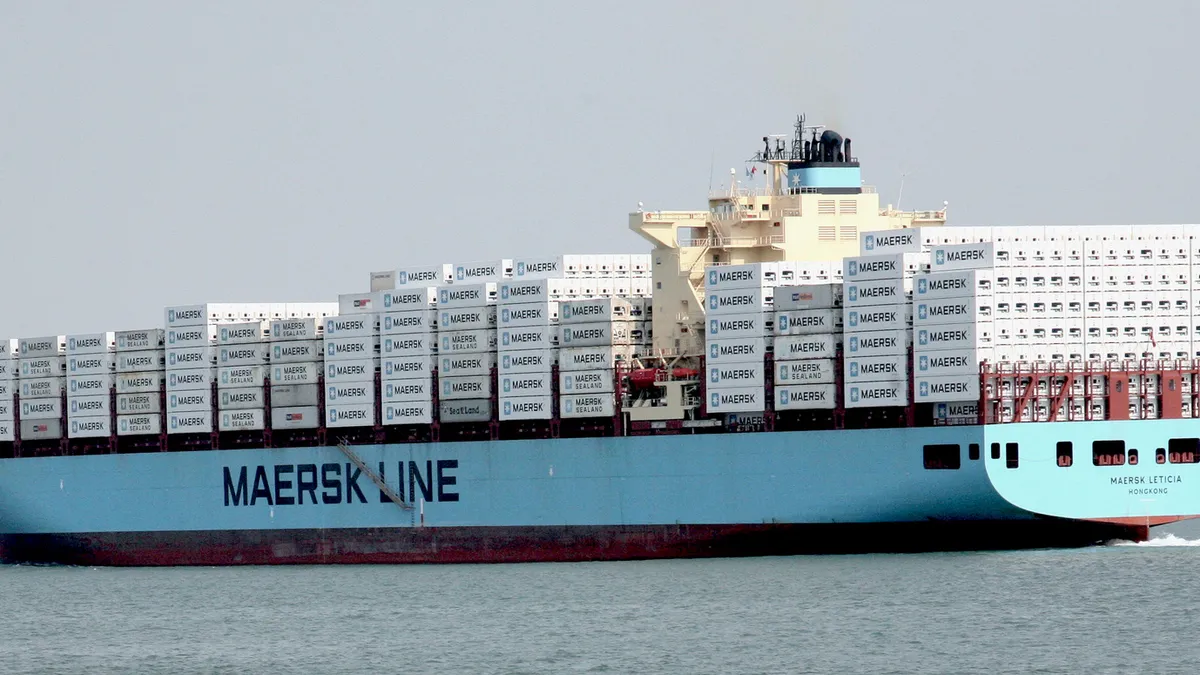Dive Brief:
- Maersk Line is optimistic that the overcapacity that nearly drowned the shipping industry is beginning to self-correct, The Wall Street Journal reported Tuesday.
- The flood of excess capacity caused the industry to drop transport prices to unheard-of-lows, and barely allowed some lines to cover fuel expense.
- Despite Maersk's optimism, however, Moody's held its negative outlook for the industry arguing supply would still outpace demand next year, American Shipper reports.
Dive Insight:
How likely is a shipping industry self-correct in 2017?
With lines such as Rickmers, which is scrapping a ship built in 2009 after seeing its value drop from a purchase price of $60 million down to its present market value of $5.9 million, and the Greek-owned Box Ships also scrapping two 9-year old, 5,095-TEU ships, which were previously chartered to CMA CGM of the OCEAN Alliance, oversupply is proving costly to the bottom line. Abandoning of such vessels hardly appears optimistic for the future.
Self-correction is seldom painless for companies heavily dependent on large capital investment. Consolidation and even slot exchange deals have been the route of survivors of the shipping downturn.
In fact, Maersk's claims more likely reflect the fact 2017 will prove a critical year for the shipping industry's recovery as new alliances, mergers and partnerships enter into effect. This year alone, Maersk bought Hamburg Sud, purchased five vessels from Hyundai Merchant Marine and restructured to provide the shipping line more capital freedom. That's hardly the end of the list.
Conservative analyses target 2020 for a turnaround, but signs of success will begin next year. Meanwhile, with fuel prices slowly rising and idle ships crowding the waters, low rates and tight margins will remain the norm.












